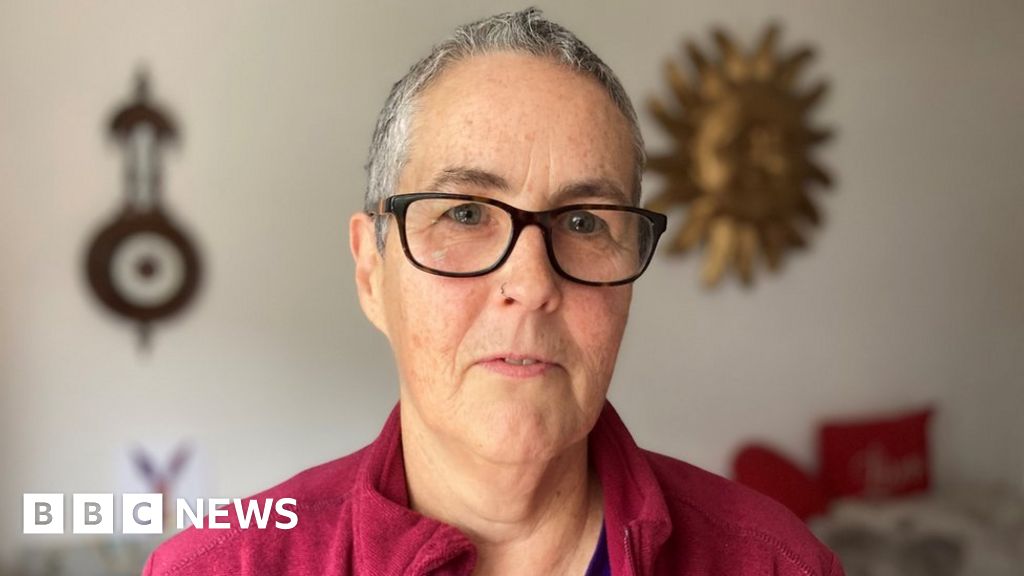### Navigating Unequal Inheritance: Insights and Legal Perspectives
Unlock the Editor’s Digest for free
Roula Khalaf, Editor of the FT, selects her favourite stories in this weekly newsletter.
I want to leave the bulk of my estate to my son because my daughter has married well and doesn’t want for anything. Is this a good idea?
Stephanie Brobbey, a senior solicitor at Goodman Derrick, a London law firm, says there is a basic principle under English law, known as testamentary freedom, which means individuals are free to leave their estate to whomsoever they wish. In theory, this means it is perfectly legal for you to leave your assets to your children in unequal shares. However, you have every reason to question whether this is a good idea.
Your immediate concern about making unequal provision for your children may relate to the possibility of your daughter taking legal steps to contest your will after your death. Generally speaking, your daughter would have to establish that you had failed to make reasonable financial provision for her by reference to a need for maintenance on her part; a difficult test to satisfy where the applicant is financially independent.
Alternatively, she could attempt to challenge the will on the basis that you were coerced into making unequal provision or that you lacked the requisite mental capacity to make a will on those terms. In reality, legal actions of this nature are extremely difficult to pursue and, more often then not, unsuccessful.
Your most pressing concern ought to be the relationship between your children after your death. Treating your children unequally will almost certainly create discord, even if it does not result in legal proceedings. The psychological impact of being left out of a will or treated differently should not be underestimated. There are also practical issues to consider: your daughter might be well off now, but what if her financial position were to change, for example, because of divorce or bankruptcy?
Stephanie Brobbey of Goodman Derrick An individual who benefits from an estate can choose to vary his or her entitlement in favour of someone else under a document called a “deed of variation”. Provided the deed of variation is signed within two years of the date of death, the variation will be treated as having been made by the deceased under the terms of the will, which is important for tax purposes. Therefore, if you left your estate to your children equally then your daughter could, if she wanted, decide to vary her entitlement to your estate in favour of your son.
If you still feel strongly about wanting to leave more of your estate to your son then it is essential that you discuss your thoughts with both children and explain your reasons for doing so. After your death you will not be able to assure them of your equal love and affection for them.
Experience has shown me that unequal treatment is a recipe for discord. Even if a formal dispute does not arise, your actions, compounded by the devastating and unpredictable nature of grief, would be likely to create a gulf of bitterness and resentment between your children.
Mike Muston, an associate at law firm Royds Withy King, says there are laws that may impact upon your ability to leave your estate to your chosen beneficiaries — the most relevant being the Inheritance (Provision for Family and Dependants) Act 1975 — or the Inheritance Act.
If a person who qualifies to make a claim under the Inheritance Act feels they have received insufficient provision (or possibly none at all), it may be possible for them to make a claim to receive a benefit from the estate. People eligible to claim include spouses, certain cohabiting partners, and children (of any age). As such, your daughter could claim on your estate under the Inheritance Act.
However, simply because a person is eligible to make a claim it does not mean it would be worthwhile or advisable for them to do so — even if they receive little or nothing at all.
Mike Muston of Royds Withy King The potential success of a claim often depends upon the assessment of a number of “relevant factors”, including the level of inheritance received, the financial circumstances of those benefiting and those claiming the overall value of the estate, and the reasons behind the choices made by the now-deceased person. As a result, it may well be that if your daughter is financially comfortable she will not have a viable claim against your estate and would be advised not to pursue one.
That said, simply because the risk of a claim by your daughter may be minimal it would be wise to consider preventive measures well in advance of your death, particularly as it will help avoid the stress of a legal dispute at what is already a time of emotional strain for your loved ones.
Examples of steps that might be taken could include leaving a letter of wishes explaining your decisions or, alternatively, having an open discussion with your daughter. While I suspect such a discussion may not be something you would approach enthusiastically (as is likely to be the case for most families) — particularly for parents who fear the impact on relationships during their lifetime — it may also be reasonable to consider the legacy that you might leave behind if you do not do so.
This is not simply in monetary terms, but also in relation to any division that may be created between future generations as a result of an inheritance dispute.
The opinions in this column are intended for general information purposes only and should not be used as a substitute for professional advice. The Financial Times Ltd and the authors are not responsible for any direct or indirect result arising from any reliance placed on replies, including any loss, and exclude liability to the full extent.
Do you have a financial dilemma that you’d like FT Money’s team of professional experts to look into? Email your problem in confidence to money@ft.com
Our next question
Our 15-year-old daughter is severely autistic and will never be financially independent. What sort of things do we need to think about as she approaches adulthood?
Exploring the Complexities of Unequal Inheritance: Legal and Emotional Considerations
In the realm of estate planning, the decision to leave unequal shares of an inheritance to children is a topic fraught with both legal and emotional complexities. A recent inquiry to the Financial Times has shed light on this delicate issue, prompting insights from legal experts on the potential ramifications of such decisions.
At the heart of English law lies the principle of testamentary freedom, allowing individuals the liberty to distribute their estate as they see fit. This principle supports the idea that a parent can, legally, choose to leave more to one child over another. However, as Stephanie Brobbey, a senior solicitor, points out, the question of whether it is advisable to do so is another matter entirely.
The concern that a child who receives less might contest the will is valid, yet such legal challenges are notoriously difficult to mount successfully. They would need to prove either a lack of reasonable financial provision, coercion, or the testator’s lack of mental capacity at the time the will was made. Despite the legal hurdles, the deeper issue often lies in the potential for lasting family discord.
Brobbey highlights the psychological impact and the possible future financial vulnerabilities that could affect a child perceived as currently well-off. She suggests a practical solution in the form of a deed of variation, which allows beneficiaries to redirect their inheritance. This could enable a more equitable distribution, should circumstances change or in reflection of the deceased’s wishes.
Open communication about estate planning decisions is crucial. Explaining the rationale behind unequal distribution to all children can help mitigate feelings of resentment and misunderstanding after the parent’s death.
Mike Muston, another legal expert, brings attention to the Inheritance (Provision for Family and Dependants) Act 1975, which offers a legal avenue for those who might feel shortchanged by an inheritance. Eligible claimants include spouses, certain cohabiting partners, and children, regardless of their age. However, the success of such a claim would heavily depend on various factors, including the claimant’s financial situation and the overall value of the estate.
Muston advises considering preventive measures to avoid potential disputes, such as drafting a letter of wishes or engaging in frank discussions with potential beneficiaries. Such steps not only clarify the testator’s intentions but can also preserve familial relationships and the legacy left behind.
The emotional and legal intricacies of estate planning, especially concerning unequal inheritance, underscore the importance of thoughtful consideration and open communication. While the law provides mechanisms to enforce or contest wills, the lasting impact on family dynamics and relationships often transcends legal outcomes.
Next Week’s Query: Planning for a Child with Special Needs
As we look ahead, our next discussion will focus on the unique considerations for parents planning the future care and financial security of a child with severe autism. Stay tuned for expert advice on navigating the challenges and ensuring a stable and supportive environment for a child who will never be financially independent.
The complexities of estate planning, particularly in cases of unequal inheritance or special needs, highlight the delicate balance between legal rights and familial bonds. As always, professional guidance tailored to individual circumstances is invaluable in navigating these deeply personal decisions.


